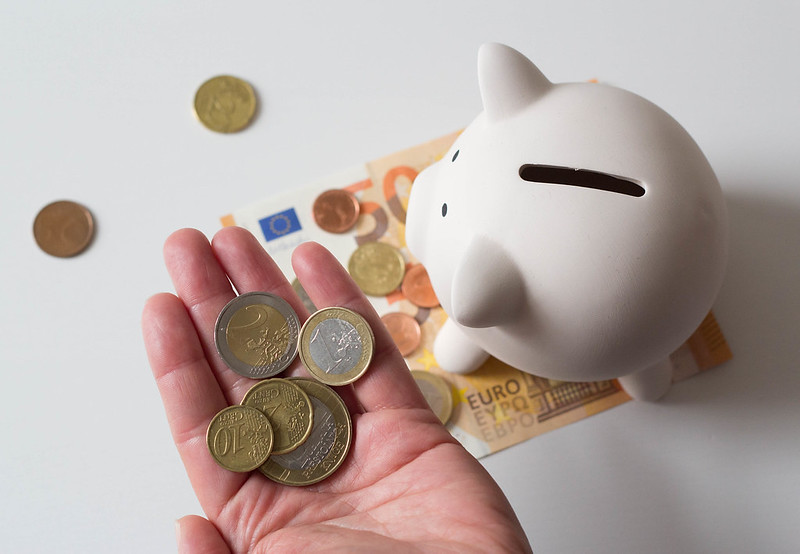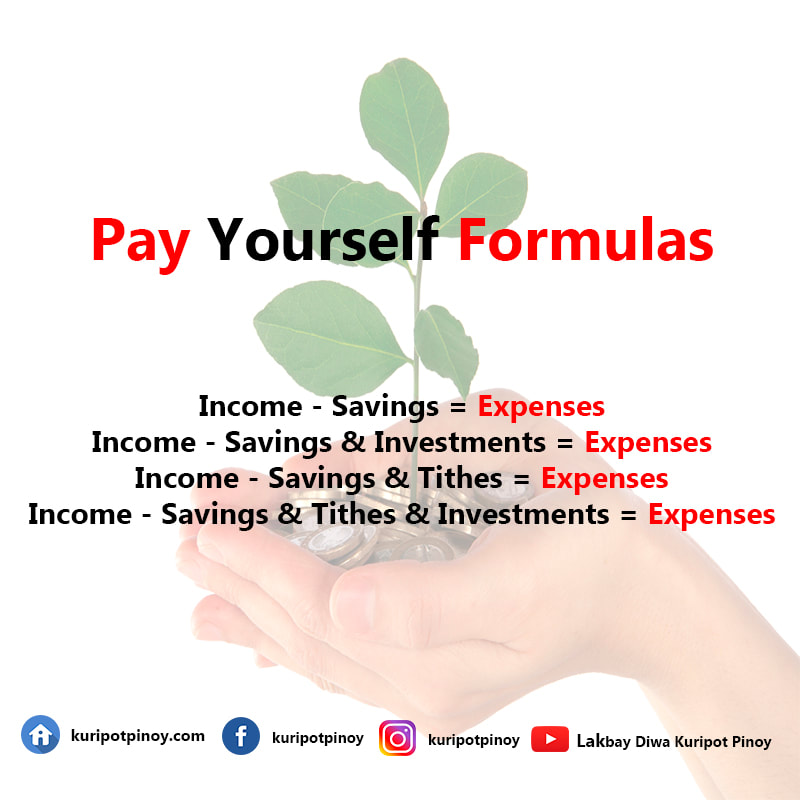Personal Development, Business, Finance, and Investing for Everyone
An investment in knowledge always pays the best interest.
|
Are your personal finances ready for your future? All of us deal with money every day, we buy our necessities and wants with it. But have you asked yourself if you are really in charge of your money? Do you make purchases that you regret later on? Let me give you the 7 basic steps to help you deal with your finances. List All Your Income And Expenses This is a very important step since this will make you aware about your income and most especially your expenses. When you start listing all your expenses, you will scratch your head and whisper to yourself, “Did I really spend that a lot?” or “Is that purchase necessary?” So by next time, you will be more conscious with your spending and every time you swipe your credit card. One more advice is by the time you write your expenses, try to classify it into two: Negotiable or Non-Negotiable. Examples for Non-Negotiable expenses are food, electricity; water and transportation while for negotiable expenses are cable or internet or postpaid for cellphone fees. Literally Live Below (Not Within) Your Means So now that you know your expenses. Then, add it up and minus it to your total income? Is it positive or negative? If positive, then you certainly did live below your means because you have excess cash. Or negative? You need some tweaks! Go back to your list of expenses and see if there are unnecessary expenses that can be eliminated. Is it your daily Starbucks coffee? DSL? Weekly movie treats? Cut some! Create a lifestyle below your income. I am sure that it is only a matter of discipline and acceptance of the fact that this is your “income” for now. So you must work your budget within it. Create An Emergency Fund Now that you are generating some positive cash flows, you should now build a cushion for sudden emergencies but this could be a tiny one (just for a start). My recommended amount would be a month worth of your average monthly expenses. This fund will help you not to loan or use your credit card in times of emergencies such as broken faucets or even for flat tires. Accumulation of this fund would be easy since you are now motivated to take charge of your finances. Pay Down Any Credit Card Or High Paying Interest Loans Help yourself and stop digging yourself for a financial meltdown. Cut the source! Just have one credit card for necessary expenses and for emergencies only and make sure it has small credit limit (good for a month’s budget). The rule of thumb is to start on the one with the highest interest rate then work your way down until you pay off everything. Most likely, your credit card will have the highest rate. Avoid paying minimum or partial payments as this will incur high cost. Time For Real Emergency Fund The common advice would be to set up around 6-8 months’ worth of your monthly expenses. This fund is important since it will give you that confidence that you have a spare tire when your current financial tire gets flat. Also, upon completion, it will give you that freedom to invest, protect and grow your money. Get Protected After funding your emergency fund, it is now time to protect your greatest asset and your money making machine, yourself! I recommend this especially for those who have families that are dependent on them. How much? Simple computation would be your annual income multiply by 10 plus funeral or incidental expenses. Talk to your registered financial planner/advisor now and ask for your needed coverage amount. Invest
Now that you are in control and protected. What will you do with your excess cash? Protect and grow it. How? There are many ways and opportunities out there such as investing in the real estate, business, time deposits, stocks, trust and mutual funds. Remember that you need to diversify your money to minimize the risk. How Do I Know What To Invest In? There is no simple answer to this question. You must first decide what your financial goals are. What do you want to accomplish, and in what period of time? What's your risk tolerance, the amount of risk that you're comfortable with? Without clear understanding of your desires, your needs, and your potential concerns, what to invest in is not clear. The most important thing you'll ever do in your financial life is to decide to truly understand the various types of investments and what their potential risks and returns are.
0 Comments
Leave a Reply. |
PLACE YOUR ADS HERE YOUR PAYDAY REMINDER FEATURED PARTNER FEATURED PROMOTIONS FEATURED MENTIONS PLACE YOUR ADS HERE PLACE YOUR ADS HERE For more updates about Personal Development, Financial and Investment Education. Join and Subscribe to my Newsletter. It's FREE! ABOUT THE BLOGGERHi, I'm Ralph Gregore Masalihit! An RFP Graduate (Registered Financial Planner Institute - Philippines). A Personal Finance Advocate. An I.T. by Profession. An Investor. Business Minded. An Introvert. A Photography Enthusiast. A Travel and Personal Finance Blogger (Lakbay Diwa and Kuripot Pinoy). Currently, I'm working my way toward time and financial freedom. PLACE YOUR ADS HERE Follow me on |












